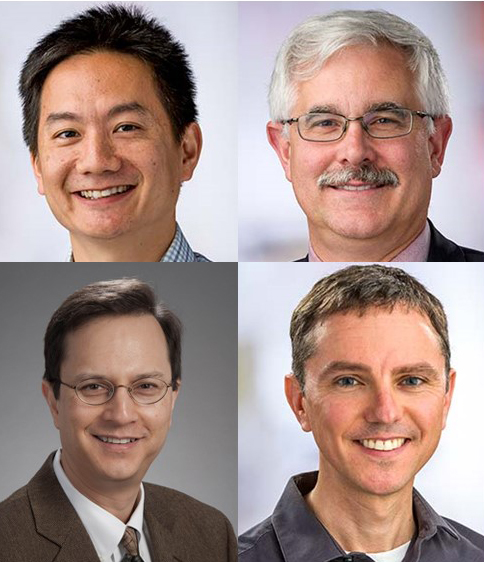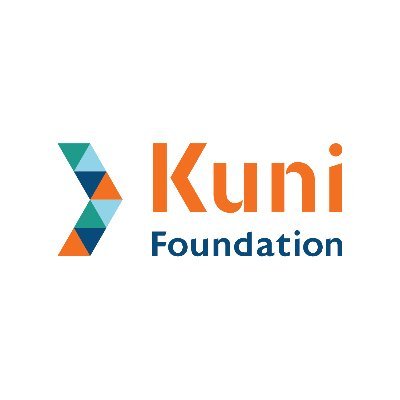

Kuni Foundation awards
Congratulations to Drs. Kevin Cheung, associate professor (Medical Oncology), Lee Cranmer, professor (Medical Oncology), Paul Nghiem, professor and head (Dermatology), and Brian Till, associate professor (Medical Oncology), who have received awards from the Kuni Foundation.
“We’re excited about this latest round of bold, visionary projects and honored to support this vital work,” said Angela Hult, president of the Kuni Foundation. “The Pacific Northwest continues to drive impactful outcomes for cancer patients thanks to this group’s inventive collaboration.”
Cheung received a three-year, $900,000 grant to develop a therapeutic antibody to eradicate metastatic breast cancer by preventing cell death in the center of tumors.
Cranmer received a three-year $300,000 grant for a Phase 1 clinical trial of a novel combination of abemaciclib and radiation therapy for advanced retroperitoneal liposarcoma.
Nghiem received a two-year $391,000 grant for a clinical trial to validate ctDNA as a biomarker for MCC, which has a high recurrence rate.
Till was awarded $900,000 over three years to develop an oncolytic measles virus for use in treating B-NHL. The goal is to produce a safe, targeted, low-toxicity, “off-the-shelf” therapy that is affordable and can be given in a single infusion.
Since 2020, Fred Hutch principal investigators working at Fred Hutch and UW Medicine have received more than $12 million from the Kuni Foundation, supporting 28 different projects.
Based in Vancouver, Washington, the Kuni Foundation is committed to funding innovative cancer research that promotes early detection, enhances treatment and improves outcomes. They focus on underfunded areas of research, including rare cancers, and emphasize collaboration among individuals and institutions as well as accessibility to clinical trials for underserved communities.